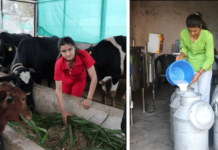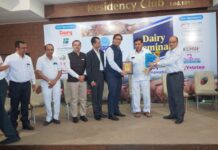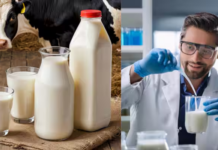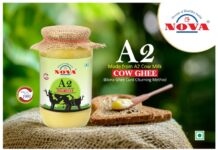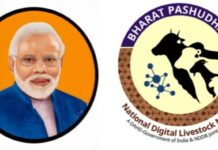New Delhi, May 31, 2021: The People for the Ethical Treatment of Animals (PETA), an American animal rights organisation, urged Amul India to switch over to producing vegan milk instead of dairy milk, as a response to changes happening in the market. PETA wrote a letter to Amul managing director RS Sodhi urging Amul “to benefit from the booming vegan food and milk market”. This set off a chain of reactions on Twitter
Here is what happened
- PETA’s suggestion did not go down well with Amul, an Indian dairy cooperative society managed by the Gujarat Co-operative Milk Marketing Federation Ltd. RS Sodhi took to Twitter to ask PETA if switching over to vegan milk will provide 100 million dairy farmers, 70% of whom are landless, with a livelihood, and pay their children’s school fees, and how many people in India can actually afford lab manufactured milk. “Will they give livelihood to 100 million dairy farmers (70% landless)? Who will pay for their children’s school fees? How many can afford expensive lab manufactured factory food made out of chemicals and synthetic vitamins?” Sodhi tweeted.
- Amul being a co-operative procures milk directly from dairy farmers. Sodhi hit out at the animal rights group claiming that switching over to vegan milk would mean handing over resources built by using farmers money to markets which sell genetically modified Soya produced by municipal corporations at outrageous prices.
- Sodhi also said that switching over to vegan milk will make an essential commodity unaffordable for the middle class who will not be able to afford vegan milk,” PETA wants Amul to snatch livelihood of 100 million poor farmers and handover its all resources built in 75 years with farmers’ money to market genetically modified Soya of rich MNC at exorbitant prices, which the average lower middle class can’t afford,” he added.
- PETA in its letter to Sodhi cited a 2018 report by global food corporation Cargill which claims that demand for dairy products around the world is on the decline as dairy is no longer considered an essential part of a diet.
- PETA claimed that global dairy companies like Nestle and Danone are acquiring stakes in non-dairy milk manufacturing thus Amul should think about venturing into vegan products too.
- The ongoing Covid-19 pandemic has made people more aware of the link between diseases and zoonotic viruses, claimed PETA. Amul should make use of the 45,000 diverse plant species available in the country and capitalise on the emerging market for vegan goods, it suggested.
- After facing severe backlash on the microblogging platform, PETA said it was just informing Amul of the current trends of vegan consumption and “encouraging” the co-operative to make smart business choices in response to the current trends. “How is letting Amul know about the trend in vegan eating and encouraging them to take advantage of it “dictating”. Smart businesses respond to trends, not fight it,” PETA tweeted.
- All types of plant-based milk are not covered under the definition of ‘milk’ as per the Food Safety and Standards Authority of India (FSSAI). Amul claims that “plant-based beverages are impersonating and masquerading as dairy products”.
- Amul had previously published some advertisements “in public interest” on March 24 stating “plant-based dairy analogue products like soya beverages are not milk”. In response, PETA, Beauty Without Cruelty (BWC), and Sharan India filed complaints with the Advertising Standards Council of India (ASCI), stating the claims made in the advertisement were false. ASCI deemed the advertisement to be correct and dismissed all three complaints.
- The ASCI upheld the claims made by Amul that dairy milk is nutritious and a rich source of calcium, vitamins, carbohydrates, fat, minerals and protein.




